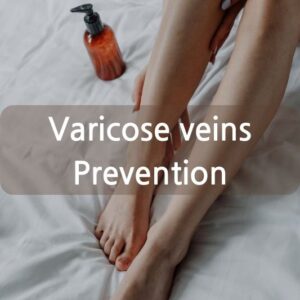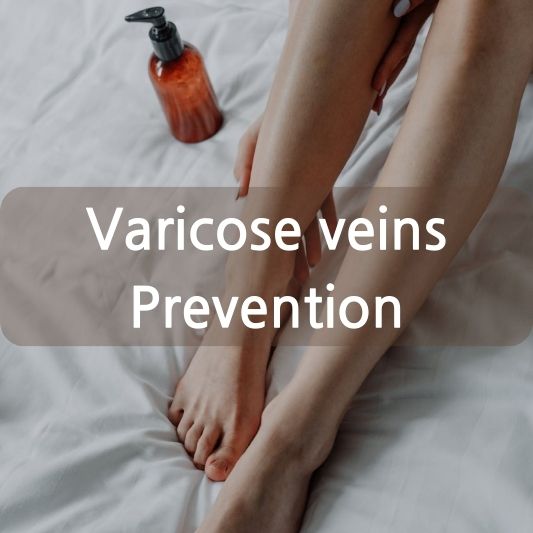Varicose veins are a common condition that affects the legs. They are caused by the weakening and dilation of veins in the legs. This allows blood to pool and flow back down the legs, causing the veins to become enlarged and twisted.

Varicose veins Causes
The exact cause of varicose veins is not fully understood, but there are several factors that can contribute to their development, including:
- Genetics: Varicose veins are more common in people with a family history of the condition.
- Hormonal changes: Varicose veins are more common in women, especially during pregnancy, menopause, and while taking birth control pills.
- Prolonged standing or sitting: Prolonged standing or sitting can increase the pressure on veins in the legs, making them more likely to dilate.
- Obesity: Obesity can increase the pressure on veins in the legs, making them more likely to dilate.
- Age: Varicose veins are more common in older people.
Symptoms
The most common symptom of varicose veins is visible bulging veins in the legs. The veins may be blue, purple, or red. Other symptoms of varicose veins may include:
- Leg pain, heaviness, or fatigue
- Leg swelling
- Leg cramps
- Skin changes, such as itching, redness, or darkening
Varicose veins Treatment
The treatment for varicose veins depends on the severity of the condition. Mild cases of varicose veins may be treated with lifestyle changes, such as:
- Compression stockings
- Regular exercise
- Weight loss
More severe cases of varicose veins may require medical treatment, such as:
- Sclerotherapy: This procedure involves injecting a chemical into the vein to cause it to collapse.
- Endovascular ablation: This procedure uses heat or radiofrequency energy to close the vein.
- Surgery: This procedure involves removing the vein.
Varicose veins Prevention
There is no sure way to prevent varicose veins, but there are things you can do to reduce your risk, such as:
- Maintain a healthy weight
- Get regular exercise
- Avoid prolonged standing or sitting
- Wear compression stockings
If you think you may have varicose veins, it is important to see a doctor for a diagnosis. Early diagnosis and treatment can help to prevent complications, such as skin ulcers or blood clots.
Conclusion:
Varicose veins, while a common and often cosmetic concern, can also lead to pain, discomfort, and potentially serious complications. While the exact cause remains elusive, various factors like genetics, hormonal changes, and lifestyle choices contribute to their development. Fortunately, numerous treatment options exist, ranging from lifestyle adjustments to minimally invasive procedures and surgery. Early diagnosis and intervention are crucial for managing symptoms and preventing complications.
FAQ:
Q: What are the most common symptoms of varicose veins?
A: Visible bulging veins, leg pain, heaviness, fatigue, swelling, cramps, and skin changes like itching, redness, or darkening are the most common signs.
Q: Are varicose veins dangerous?
A: While typically not life-threatening, varicose veins can lead to complications like skin ulcers, bleeding, and deep vein thrombosis (DVT) in rare cases. Seek medical attention if you experience severe pain, redness, warmth, or sudden swelling in your legs.
Q: What lifestyle changes can help prevent or manage varicose veins?
A: Maintaining a healthy weight, engaging in regular exercise, avoiding prolonged standing or sitting, and wearing compression stockings can significantly improve symptoms and decrease the risk of progression.
Q: What are the treatment options for varicose veins?
A: Depending on the severity, treatment options include lifestyle modifications, sclerotherapy (chemical injection), endovascular ablation (heat or radiofrequency closure), and surgical vein removal.
Q: Do I need to see a doctor if I suspect varicose veins?
A: Yes, consult a doctor for a proper diagnosis and to discuss the best course of treatment for your specific case. Early intervention can alleviate symptoms, prevent complications, and improve your overall well-being.
Remember: While not always preventable, taking proactive measures and seeking timely medical attention can effectively manage varicose veins and ensure your leg health.
This information is intended for general knowledge and educational purposes only. Always consult a healthcare professional for any specific medical questions or concerns.
Find out the price of nutritional supplements to help improve blood circulation on iHerb!
